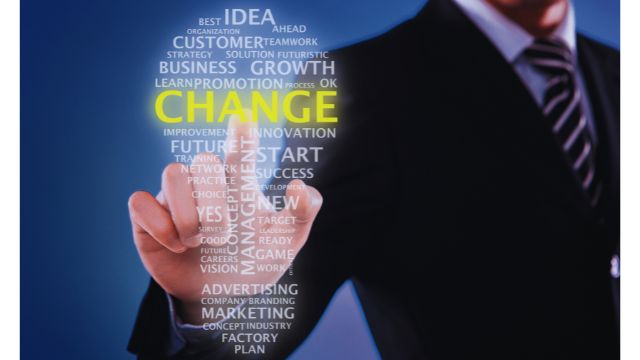Mental health has become a cornerstone of overall well-being, especially as the world navigates the complexities of modern life. In 2025, the focus on mental health is stronger than ever, with individuals seeking sustainable ways to enhance their emotional and psychological resilience. The pressures of work, technology, and societal expectations can take a toll, but adopting intentional lifestyle changes can make a profound difference. This article explores ten powerful lifestyle changes to boost mental health in 2025, offering practical and actionable strategies to help you thrive. From nurturing physical health to fostering meaningful connections, these changes are designed to create lasting improvements in your mental well-being.
1. Prioritize Quality Sleep for Mental Clarity
Sleep is the foundation of mental health, yet many people overlook its importance. In 2025, with the rise of sleep-tracking technology and personalized sleep solutions, prioritizing quality rest has never been easier. Poor sleep can lead to increased stress, anxiety, and difficulty concentrating, while consistent, restorative sleep enhances mood, cognitive function, and emotional resilience. To improve sleep, establish a calming bedtime routine, limit screen time before bed, and create a sleep-friendly environment with comfortable bedding and minimal distractions. Aiming for seven to nine hours of uninterrupted sleep each night can recharge your mind and set the stage for a healthier mental state.
2. Embrace Mindful Movement for Stress Relief
Physical activity is a proven mood booster, but in 2025, the emphasis is on mindful movement rather than intense workouts. Activities like yoga, tai chi, or even leisurely walks in nature can reduce stress and promote mental clarity. These practices encourage you to stay present, fostering a deeper connection between body and mind. Unlike high-pressure fitness regimes, mindful movement focuses on enjoyment and relaxation, making it easier to sustain. Incorporating just 20 minutes of gentle exercise into your daily routine can release endorphins, lower cortisol levels, and improve your overall sense of well-being.
3. Nourish Your Body with a Balanced Diet
The connection between diet and mental health is undeniable. In 2025, advances in nutritional science highlight the importance of whole, nutrient-dense foods for brain health. Consuming a diet rich in fruits, vegetables, lean proteins, and healthy fats supports cognitive function and stabilizes mood. Foods high in omega-3 fatty acids, such as salmon and walnuts, are particularly beneficial for reducing inflammation and supporting neurotransmitter function. Limiting processed foods and excessive sugar can also prevent energy crashes and mood swings. By making small, intentional choices—like swapping sugary snacks for fresh fruit—you can fuel your body and mind for optimal mental health.
4. Cultivate Mindfulness Through Meditation
Meditation has surged in popularity, and in 2025, it remains a cornerstone of mental health practices. This simple yet powerful tool helps you manage stress, improve focus, and foster emotional balance. Whether through guided apps, breathwork, or silent reflection, meditation encourages you to stay grounded in the present moment. Even just five minutes a day can make a difference, helping you develop greater self-awareness and resilience. By incorporating mindfulness into your routine, you can better navigate life’s challenges and maintain a sense of inner calm, no matter what 2025 brings.
5. Build Strong Social Connections
Humans are inherently social, and meaningful relationships are vital for mental health. In 2025, with virtual and hybrid interactions still prevalent, prioritizing authentic connections is more important than ever. Spending time with friends, family, or even community groups can provide emotional support and reduce feelings of loneliness. Actively listening, sharing experiences, and showing empathy strengthen these bonds. If in-person meetups are challenging, virtual coffee chats or group activities can still foster closeness. Investing in relationships not only boosts your mood but also creates a safety net for life’s ups and downs.
6. Limit Digital Overload for Mental Peace
Technology is a double-edged sword in 2025, offering convenience but also contributing to mental overwhelm. Constant notifications, social media scrolling, and information overload can increase anxiety and reduce focus. To protect your mental health, set boundaries with technology. Designate tech-free zones, such as during meals or before bed, and schedule specific times to check emails or social media. Curating your online feeds to include positive, uplifting content can also shift your mindset. By reducing digital clutter, you create space for mental clarity and genuine relaxation.
7. Engage in Creative Outlets for Self-Expression
Creativity is a powerful way to process emotions and boost mental health. In 2025, creative outlets like journaling, painting, or playing music are more accessible than ever, thanks to online platforms and community workshops. These activities allow you to express yourself without judgment, fostering a sense of accomplishment and joy. Even if you don’t consider yourself “artistic,” simple acts like doodling or writing a short story can be therapeutic. Dedicating time to creative pursuits helps you tap into your inner world, reducing stress and enhancing emotional resilience.
8. Practice Gratitude to Shift Your Perspective
Gratitude is a transformative practice that rewires your brain for positivity. In 2025, gratitude journals and apps make it easy to incorporate this habit into daily life. Reflecting on what you’re thankful for—whether it’s a kind gesture, a beautiful sunrise, or personal growth—can shift your focus away from negativity. This practice doesn’t ignore life’s challenges but helps you find balance by appreciating the good. Writing down three things you’re grateful for each day can improve your mood, reduce stress, and cultivate a more optimistic outlook over time.
9. Set Realistic Goals for a Sense of Purpose
Having a sense of purpose is essential for mental health, and setting realistic goals can provide direction and motivation. In 2025, with the fast pace of life, breaking goals into manageable steps is key to avoiding overwhelm. Whether it’s learning a new skill, improving fitness, or advancing your career, clear objectives give you something to work toward. Celebrate small wins along the way to stay motivated and build confidence. By aligning your goals with your values, you create a roadmap for personal growth that enhances your mental well-being.
10. Seek Professional Support When Needed
While lifestyle changes are powerful, sometimes professional support is necessary to maintain mental health. In 2025, access to therapy and counseling has expanded through telehealth platforms, making it easier to connect with licensed professionals. Whether you’re dealing with anxiety, depression, or simply need guidance, seeking help is a sign of strength. Therapists can provide tools and strategies tailored to your needs, complementing the lifestyle changes you’re already implementing. Normalizing mental health support empowers you to take charge of your well-being without stigma.
Create a Personalized Mental Health Routine
The beauty of these lifestyle changes lies in their flexibility. In 2025, personalization is key to sustainable mental health practices. Combining elements like mindful movement, gratitude, and strong social connections into a daily routine creates a holistic approach to well-being. Start small by integrating one or two changes, then gradually build on them as they become habits. For example, you might begin your day with a short meditation, take a walk during lunch, and end with a gratitude reflection. Tailoring these practices to your lifestyle ensures they’re enjoyable and effective in the long term.
The Role of Consistency in Mental Health
Consistency is the backbone of any successful lifestyle change. In 2025, with distractions at an all-time high, staying committed to mental health practices requires intention. Small, daily actions—like eating a nutritious meal or checking in with a friend—compound over time, leading to significant improvements. Track your progress with a journal or app to stay accountable and reflect on how far you’ve come. Even on tough days, showing up for yourself in small ways reinforces your commitment to mental well-being.
Overcoming Common Barriers to Change
Adopting new habits isn’t always easy, especially with busy schedules and unexpected challenges. In 2025, common barriers like time constraints or lack of motivation can derail progress. To overcome these, start with micro-habits, such as a one-minute meditation or a quick stretch. Surround yourself with supportive people who encourage your efforts, and be kind to yourself when setbacks occur. Viewing challenges as opportunities to learn rather than failures keeps you moving forward. With patience and persistence, these lifestyle changes become second nature.
The Future of Mental Health in 2025
As we move deeper into 2025, the conversation around mental health continues to evolve. Advances in technology, such as AI-driven wellness apps and virtual therapy, make support more accessible. However, the core of mental health lies in human connection, self-care, and intentional living. By embracing these ten lifestyle changes, you’re not just improving your mental health today—you’re building a foundation for a resilient, fulfilling future. The journey to better mental health is personal, but with the right tools and mindset, it’s within everyone’s reach.
Conclusion: Take the First Step Today
Boosting your mental health in 2025 doesn’t require drastic changes. By incorporating these ten lifestyle practices—quality sleep, mindful movement, balanced nutrition, meditation, social connections, digital boundaries, creativity, gratitude, goal-setting, and professional support—you can create a life that feels more balanced and fulfilling. Start with one change that resonates with you, and build from there. Your mental health is worth the investment, and the benefits will ripple into every aspect of your life. Take the first step today, and embrace a brighter, healthier 2025.

